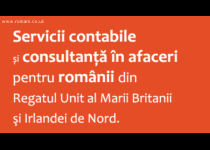"Preşedintele României a arătat aprecierea faţă de activitatea negociatorului-şef pentru Brexit, precum şi a echipei sale în acest proces. Preşedintele Klaus Iohannis şi-a exprimat speranţa că eforturile depuse de reprezentanţii instituţiilor europene şi ai statelor membre se vor concretiza prin agrearea unui Acord de Retragere şi a unei Declaraţii Politice privind cadrul relaţiilor viitoare dintre UE şi Marea Britanie. Preşedintele României a subliniat importanţa deosebită a menţinerii unităţii celor 27 de state membre ale Uniunii în cadrul negocierilor privind Brexit, arătând că această abordare reprezintă o premisă esenţială în gestionarea eficientă a acestui proces", se arată într-un comunicat de presă al Administraţiei Prezidenţiale, remis marţi MEDIAFAX.
Klaus Iohnanis i-a mai transmis oficialului străin că România sprijină un proces ordonat şi previzibil al retragerii Marii Britanii, "pentru a pune bazele unei relaţii viitoare cât mai apropiate între UE şi Regatul Unit".
"Principala prioritate în acest stadiu al negocierilor este finalizarea textului Acordului de Retragere cât mai curând posibil prin identificarea unor soluţii privind problemele încă divergente, în special în ceea ce priveşte graniţa dintre Irlanda şi Irlanda de Nord. Cu privire la modelul de cooperare economică în contextul relaţiilor viitoare, Preşedintele României a subliniat că integritatea Pieţei Unice a UE şi indivizibilitatea celor patru libertăţi reprezintă piloni de bază ai proiectului european şi nu sunt negociabili", potrivit sursei citate.
Sursa: Mediafax




 Ages ago, when I was beginning my adventure as a Romanian Londoner, I used to travel all the way from Seven Sisters in North East London to West Kensington to find Polish food similar to Romanian food. I wouldn't have imagined then that in a few years time I would be able to find Romanian food and wine everywhere in London.
Ages ago, when I was beginning my adventure as a Romanian Londoner, I used to travel all the way from Seven Sisters in North East London to West Kensington to find Polish food similar to Romanian food. I wouldn't have imagined then that in a few years time I would be able to find Romanian food and wine everywhere in London.





















